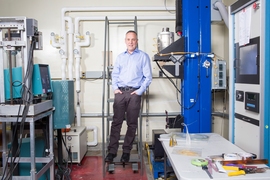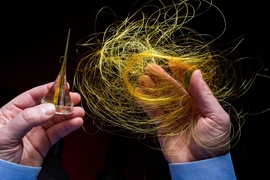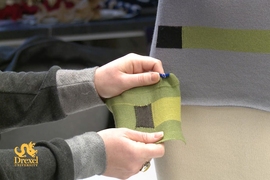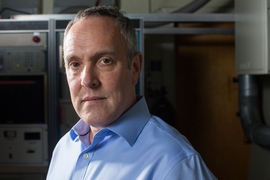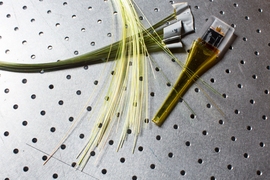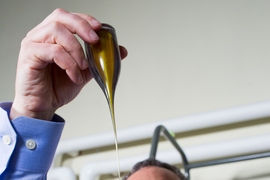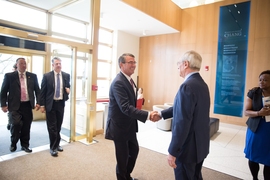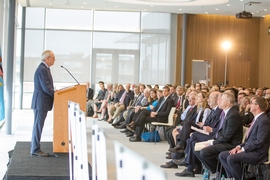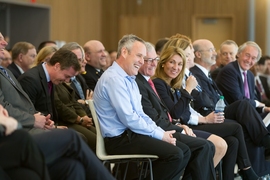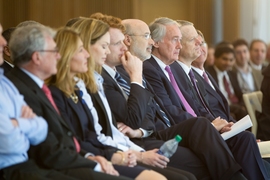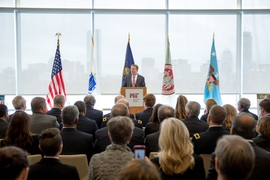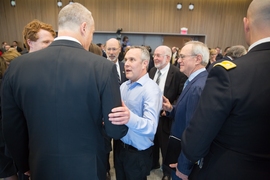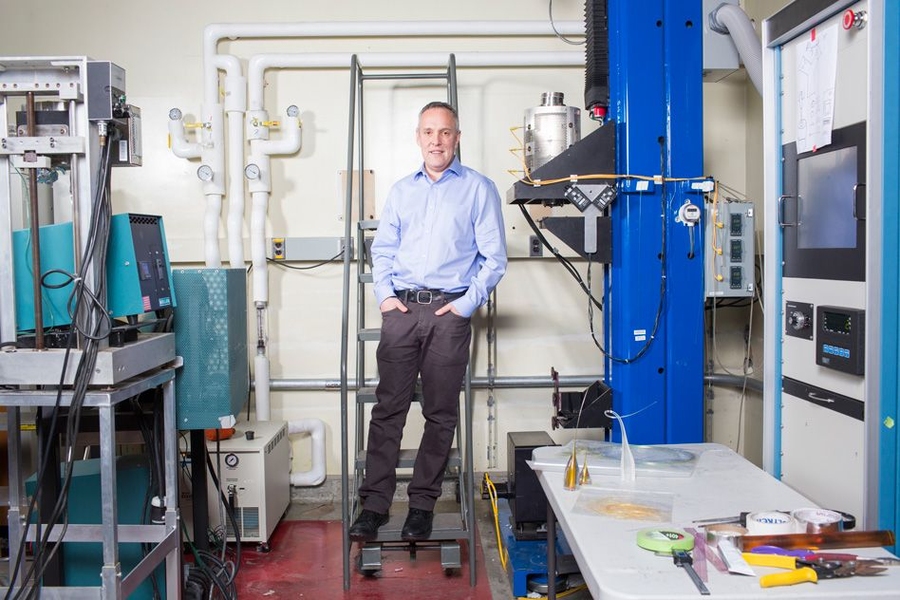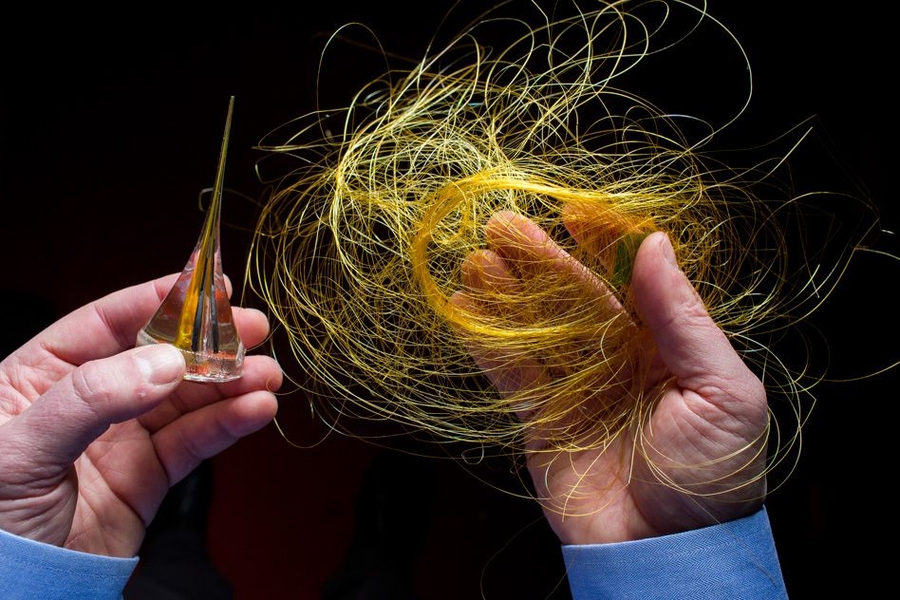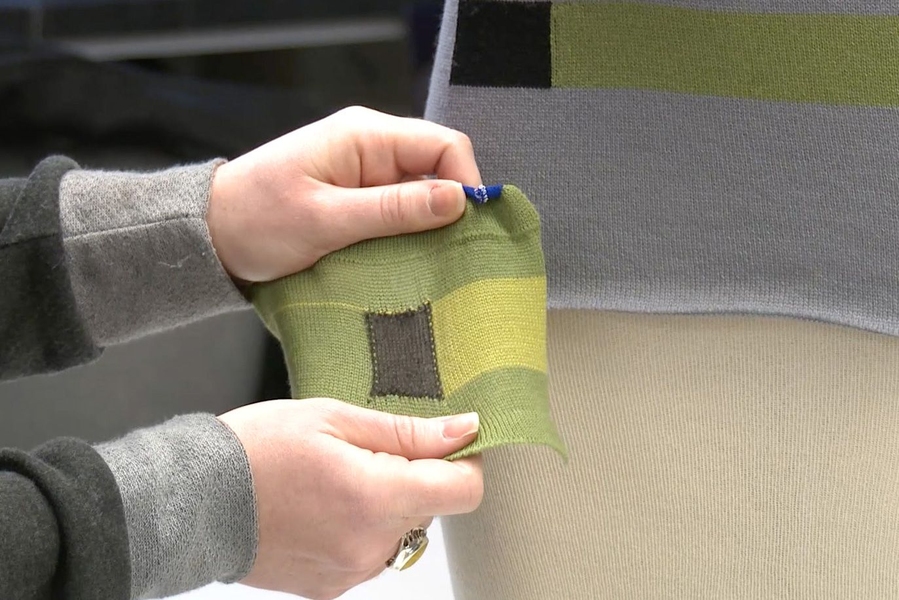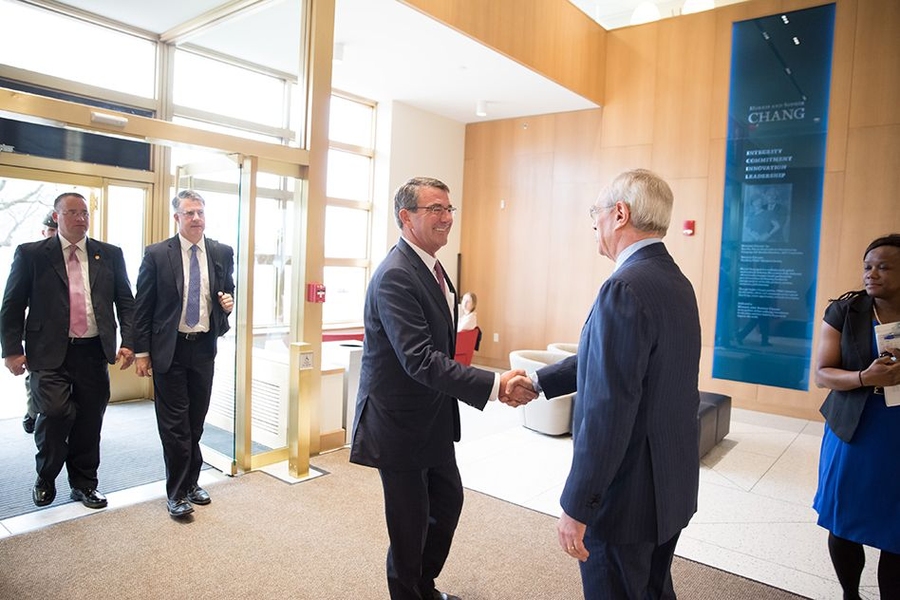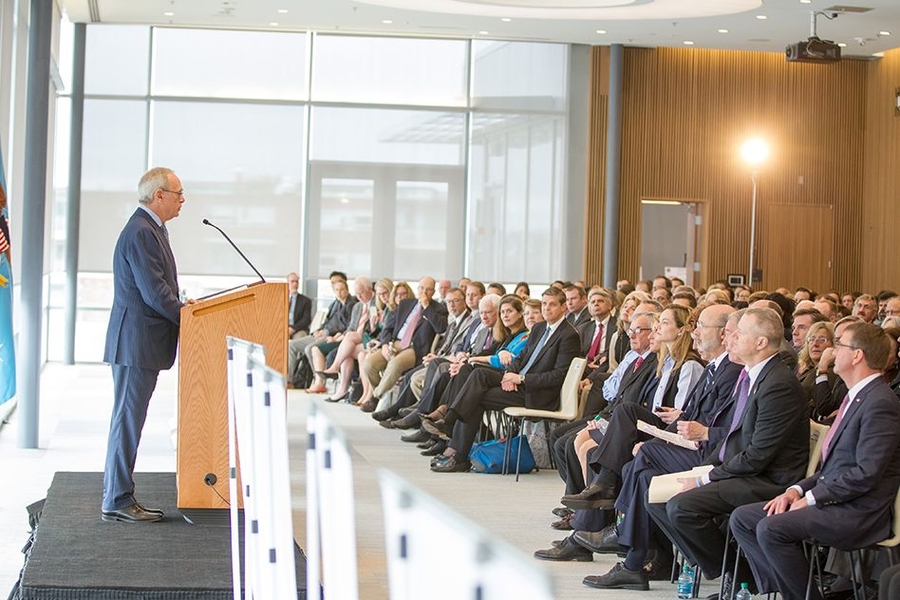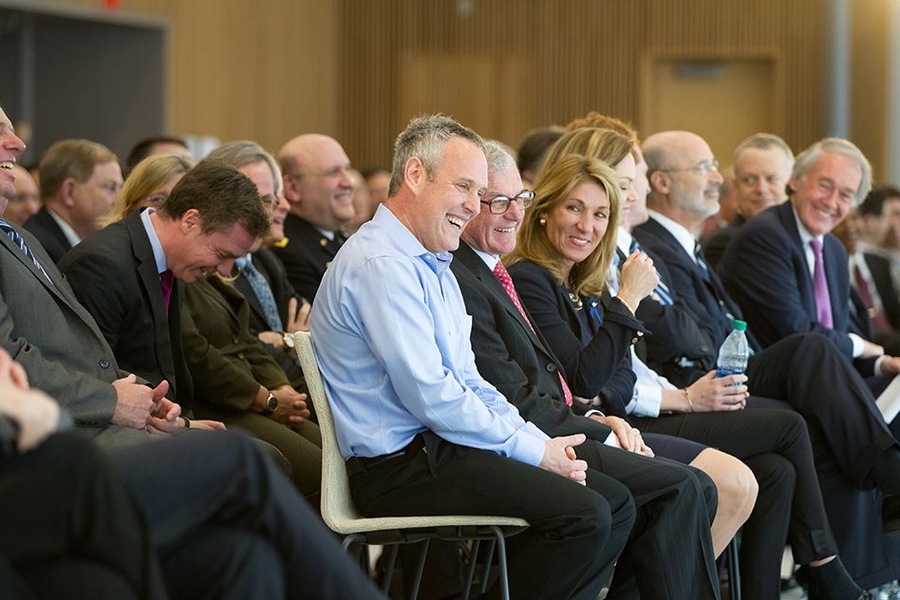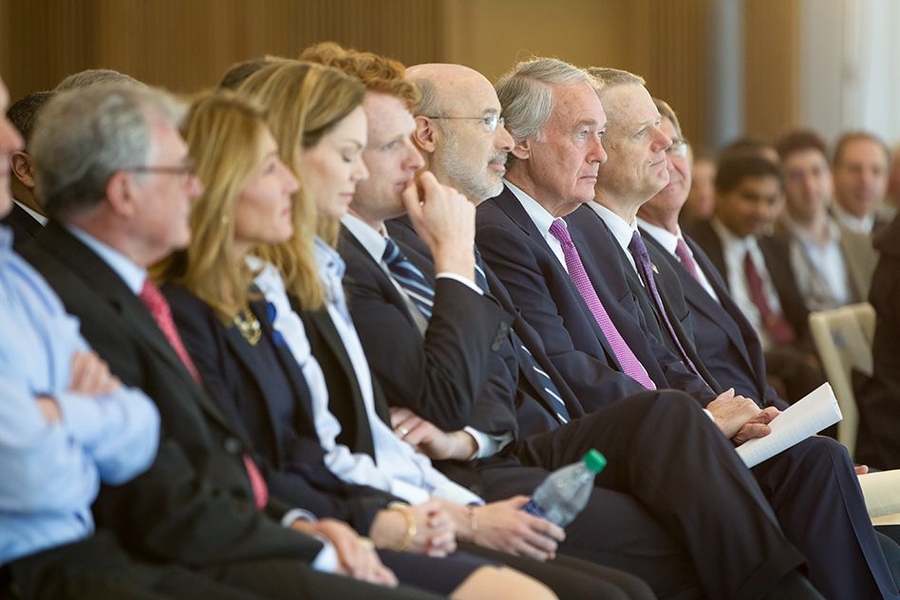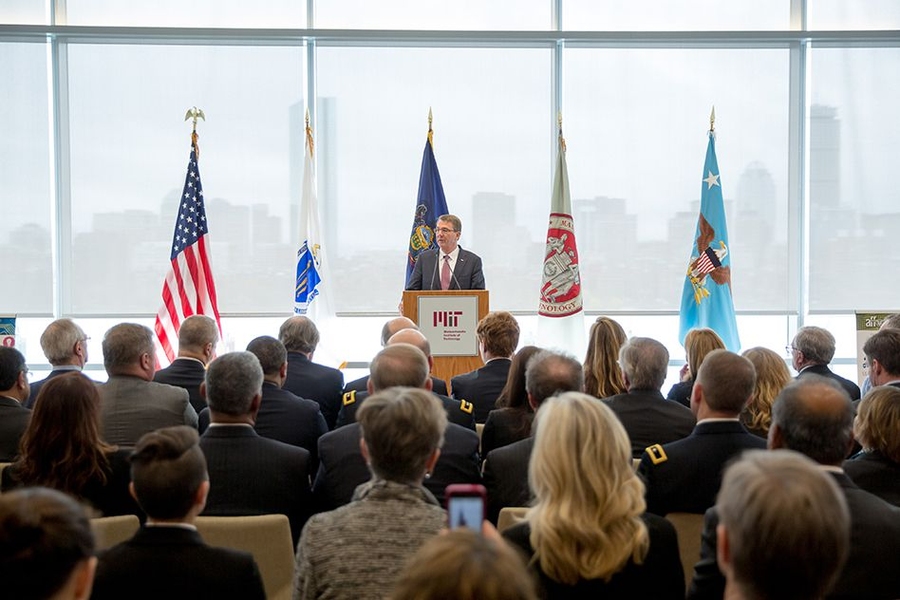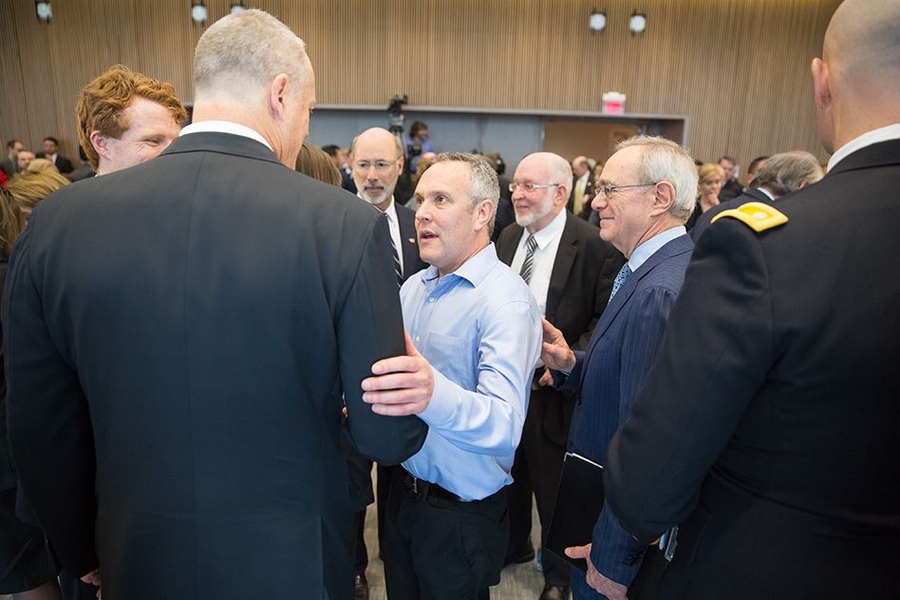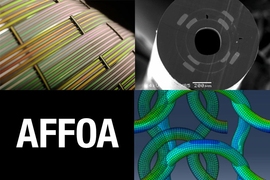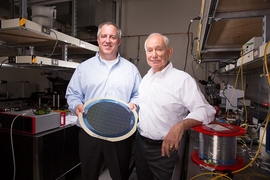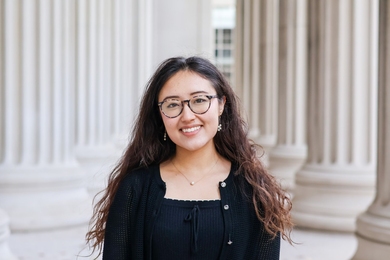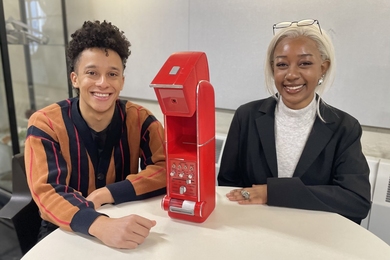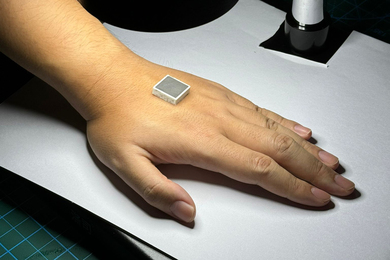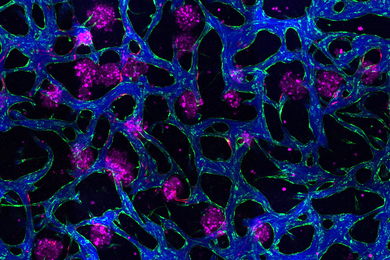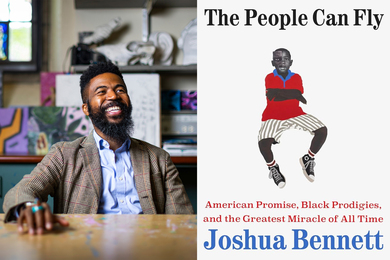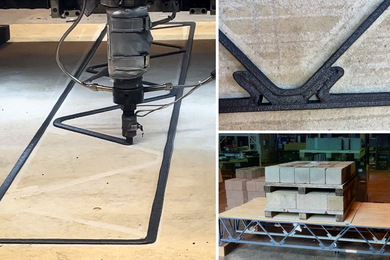An independent nonprofit founded by MIT has been selected to run a new, $317 million public-private partnership announced today by Secretary of Defense Ashton Carter.
The partnership, named the Advanced Functional Fabrics of America (AFFOA) Institute, has won a national competition for federal funding to create the latest Manufacturing Innovation Institute. It is designed to accelerate innovation in high-tech, U.S.-based manufacturing involving fibers and textiles.
The proposal for the institute was led by Professor Yoel Fink, director of MIT’s Research Laboratory of Electronics (RLE). The partnership includes 32 universities, 16 industry members, 72 manufacturing entities, and 26 startup incubators, spread across 27 states and Puerto Rico.
This is the eighth Manufacturing Innovation Institute established to date, and the first to be headquartered in New England. The headquarters will be established in Cambridge, Massachusetts, in proximity to the MIT campus and its U.S. Army-funded Institute for Soldier Nanotechnology, as well as the Natick Soldier Research Development and Engineering Center.
This unique partnership, Fink says, has the potential to create a whole new industry, based on breakthroughs in fiber materials and manufacturing. These new fibers and the fabrics made from them will have the ability to see, hear, and sense their surroundings; communicate; store and convert energy; monitor health; control temperature; and change their color.
The new initiative will receive $75 million in federal funding out of a total of $317 million through cost sharing among the Department of Defense, industrial partners, venture capitalists, universities, nonprofits, and states including the Commonwealth of Massachusetts. The initial funding will cover a five-year period and will be administered through the new, independent, nonprofit organization set up for the purpose. The partnership, which will focus on both developing new technologies and training the workforce needed to operate and maintain these production systems, also includes a network of community colleges and experts in career and technical education for manufacturing.
“Massachusetts’s innovation ecosystem is reshaping the way that people interact with the world around them,” says Massachusetts Gov. Charlie Baker. “This manufacturing innovation institute will be the national leader in developing and commercializing textiles with extraordinary properties. It will extend to an exciting new field our ongoing efforts to nurture emerging industries, and grow them to scale in Massachusetts. And it will serve as a vital piece of innovation infrastructure, to support the development of the next generation of manufacturing technology, and the development of a highly skilled workforce.”
“Through this manufacturing innovation institute, Massachusetts researchers and Massachusetts employers will collaborate to unlock new advances in military technology, medical care, wearable technology, and fashion,” adds Massachusetts Lt. Gov. Karyn Polito. “This, in turn, will help drive business expansion, support the competitiveness of local manufacturers, and create new employment opportunities for residents across the Commonwealth.”
Announcing the new institute at an event at MIT, Carter stressed the importance of technology and innovation to the mission of the Department of Defense and to national security broadly: “The intersection of the two is truly an opportunity-rich environment. These issues matter. They have to do with our protection and our security, and creating a world where our fellow citizens can go to school and live their lives, and dream their dreams, and one day give their children a better future. Helping defend your country and making a better world is one of the noblest things that a business leader, a technologist, an entrepreneur, or a young person can do, and we’re all grateful to all of you for doing that with us.”
A new age of fabrics
For thousands of years, humans have used fabrics in much the same way, to provide basic warmth and aesthetics. Clothing represents “one of the most ancient forms of human expression,” Fink says, but one that is now, for the first time, poised to undergo a profound transformation — the dawn of a “fabric revolution.”
“What makes this point in time different? The answer is research,” Fink says: Objects that serve many complex functions are always made of multiple materials, whereas single-material objects, such as a drinking glass, usually have just a single, simple function. But now, new technology — some of it developed in Fink’s own laboratory — is changing all that, making it possible to integrate many materials and complex functional structures into a fabric’s very fibers, and to create fiber-based devices and functional fabric systems.
The semiconductor industry has shown how to combine millions of transistors into an integrated circuit that functions as a system; as described by “Moore’s law,” the number of devices and functions has doubled in computer chips every couple of years. Fink says the team envisions that the number of functions in a fiber will grow with similar speed, paving the way for highly functional fabrics.
The challenge now is to execute this vision, Fink says. While many textile and apparel companies and universities have figured out pieces of this puzzle, no single one has figured it all out.
“It turns out there is no company or university in the world that knows how to do all of this,” Fink says. “Instead of creating a single brick-and-mortar center, we set out to assemble and organize companies and universities that have manufacturing and ‘making’ capabilities into a network — a ‘distributed foundry’ capable of addressing the manufacturing challenges. To date, 72 manufacturing entities have signed up to be part of our network.”
“With a capable manufacturing network in place,” Fink adds, “the question becomes: How do we encourage and foster product innovation in this new area?” The answer, he says, lies at the core of AFFOA’s activities: Innovators across the country will be invited to execute “advanced fabric” products on prototyping and pilot scales. Moreover, the center will link these innovators with funding from large companies and venture capital investors, to execute their ideas through the manufacturing stage. The center will thus lower the barrier to innovation and unleash product creativity in this new domain, he says.
Promoting leadership in manufacturing
The federal selection process for the new institute was administered by the U.S. Department of Defense’s Manufacturing Technology Program and the U.S. Army’s Natick Soldier Research, Development and Engineering Center and Contracting Command in New Jersey. Retired Gen. Paul J. Kern will serve as chairman of the AFFOA Institute.
As explained in the original call for proposals to create this institute, the aim is to ensure “that America leads in the manufacturing of new products from leading edge innovations in fiber science, commercializing fibers and textiles with extraordinary properties. Known as technical textiles, these modern day fabrics and fibers boast novel properties ranging from being incredibly lightweight and flame resistant, to having exceptional strength. Technical textiles have wide-ranging applications, from advancing capabilities of protective gear allowing fire fighters to battle the hottest flames, to ensuring that a wounded soldier is effectively treated with an antimicrobial compression bandage and returned safely.”
In addition to Fink, the new partnership will include Tom Kochan, the George Maverick Bunker Professor of Management at MIT’s Sloan School of Management, who will serve as chief workforce officer coordinating the nationwide education and workforce development (EWD) plan. Pappalardo Professor of Mechanical Engineering Alexander Slocum will be the EWD deputy for education innovation. Other key MIT participants will include professors Krystyn Van Vliet from the Materials Science and Engineering and Biological Engineering departments; Peko Hosoi and Kripa Varanasi from the Department of Mechanical Engineering; and Gregory Rutledge from the Department of Chemical Engineering.
Among the industry partners who will be members of the partnership are companies such as Warwick Mills, DuPont, Steelcase, Nike, and Corning. Among the academic partners are Drexel University, the University of Massachusetts at Amherst, the University of Georgia, the University of Tennessee, and the University of Texas at Austin.
In a presentation last fall about the proposed partnership, MIT President L. Rafael Reif said, “We believe that partnerships — with industry and government and across academia — are critical to our capacity to create positive change.” He added, “Our nation has no shortage of smart, ambitious people with brilliant new ideas. But if we want a thriving economy, producing more and better jobs, we need more of those ideas to get to market faster.” Accelerating such implementation is at the heart of the new partnership’s goals.
Connecting skills, workers, and jobs
This partnership, Reif said, will be “a system that connects universities and colleges with motivated companies and with far-sighted government agencies, so we can learn from each other and work with each other. A system that connects workers with skills, and skilled workers with jobs. And a system that connects advanced technology ideas to the marketplace or to those who can get them to market.”
Part of the power of this new collaboration, Fink says, is combining the particular skills and resources of the different partners so that they “add up to something that’s more than the sum of the parts.” Existing large companies can contribute both funding and expertise, smaller startup companies can provide their creative new ideas, and the academic institutions can push the research boundaries to open up new technological possibilities.
“MIT recognizes that advancing manufacturing is vital to our innovation process, as we explored in our Production in the Innovation Economy (PIE) study,” says MIT Provost Martin Schmidt. “AFFOA will connect our campus even more closely with industries (large and small), with educational organizations that will develop the skilled workers, and with government at the state and federal level — all of whom are necessary to advance this new technology. AFFOA is an exciting example of the public-private partnerships that were envisioned in the recommendation of the Advanced Manufacturing Partnership.”
“Since MIT’s start, there has always been an emphasis on ‘mens et manus,’ using our minds and hands to make inventions useful at scales that impact the nation and the world,” adds Van Vliet, the director of manufacturing innovation for MIT’s Innovation Initiative, who has served as the faculty lead in coordinating MIT’s response to manufacturing initiatives that result from the Advanced Manufacturing Partnership. “What makes this new partnership very exciting is, this is for the first time a manufacturing institute headquartered in our region that connects our students and our faculty with local and national industrial partners, to really scale up production of many new fiber and textile technologies.”
“Participating in this group of visionaries from government, academia, and industry — who are all motivated by the goal of advancing a new model of American textile manufacturing and helping to develop new products for the public and defense sectors — has been an exciting process,” says Aleister Saunders, Drexel University’s senior vice provost for research and a leader of its functional fabrics center. “Seeing the success we’ve already had in recruiting partners at the local level leads me to believe that on a national level, these centers of innovation will be able to leverage intellectual capital and regional manufacturing expertise to drive forward new ideas and new applications that will revolutionize textile manufacturing across the nation.”
“Revolutionary fabrics and fibers are modernizing everything from battlefield communication to medical care,” says U.S. Congressmen Joe Kennedy III (D-Mass.). “That the Commonwealth would be chosen to lead the way is no surprise. From Lowell to Fall River, our ability to merge cutting-edge technology with age-old ingenuity has sparked a new day for the textile industry. With its unparalleled commitment to innovation, MIT is the perfect epicenter for scaling these efforts. I applaud President Reif, Professor Fink, and all of the partners involved for this tremendous success.”
The innovations that led to the “internet of things” and the widespread incorporation of digital technology into manufacturing have brought about a revolution whose potential is unlimited and will generate “brilliant ideas that people will be able to bring to this task of making sure that America stays number one in each and every one of these fields,” said Senator Ed Markey (D-Mass.) at the MIT event. “The new institute we are announcing today will help ensure that both Massachusetts and the United States can expand our technological edge in a new generation of fiber science.”
A wide range of industries are expected to benefit from these revolutionary fibers and textiles, including apparel, consumer products, automotive, medical devices, and consumer electronics. “Fibers and fabrics are ubiquitous,” Fink says. “Our institute will go everywhere a fiber and fabric goes.”
